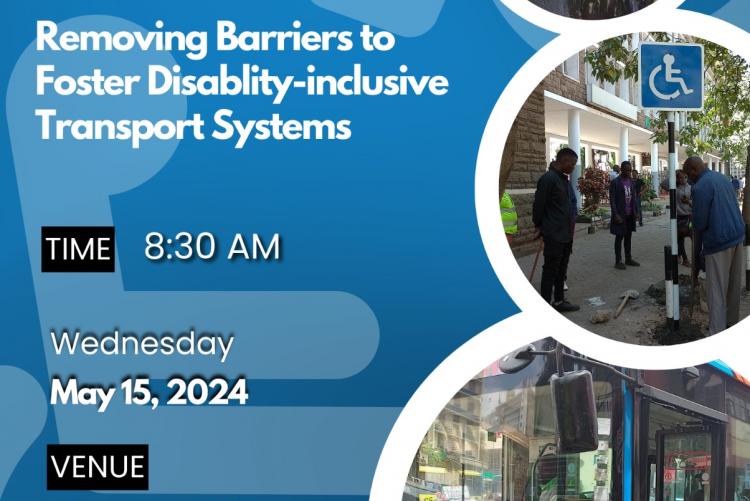Join us at the Dissemination Workshop hosted by the University of Nairobi, University of Education, Winneba, and Volvi Research Foundation! Discover insights from the SITUATE-2 project on disability-inclusive urban transport in Accra and Nairobi on Wednesday, May 15, 2024 at 8:00am - 1pm, at the University of Nairobi Towers, Room MLT 401.
Introduction and Aims of the Workshop:
The plight of PWDs in major African cities like Accra (Ghana) and Nairobi (Kenya) is exacerbated by disorganized urban forms and structures, unfriendly transport systems and public buildings that hinder access to all types of essential services (Odame et al., 2023; Chore et al., 2022). To help improve the accessibility of PWDs in Africa, through a disability-inclusive urban transport system, our previous project, SITUATE-1, examined the design of the urban transport system and form in Accra and Nairobi vis-à-vis the varied mobility patterns, needs, experiences, and challenges of different categories of PWDs (i.e., the hearing, visual and physical impairments) towards a policy and practice agenda. Particularly, the project examined the impediments in PWDs' quest to be socially mobile and inclusive and how best they manage these impediments in the urban environment. In addition, the project also explored city authorities' and managers' knowledge and understanding of the mobility needs, experiences, and challenges of PWDs.
The project addressed the following specific questions related to the call:
● What radical changes and approaches do local stakeholders need to introduce in urban transport to enhance access and address the needs of marginalized groups, particularly PWDs with unique needs?
● How can the urban form and planning process be participatory and inclusive of PWDs' representations and perspectives?
● What are the characteristics of mobility-related institutions (e.g., their roles, responsibilities, rights, expertise, and financing capacity) at different levels and bodies of government that can be considered 'best practice' in Africa?
● What challenges engulf mobility-related institutions in their daily activities to ensure a social inclusive urban transport system?
● What factors are significant for institutional capacity building of urban managers to develop and ensure equitable access and sustainable mobility?
● How can urban policy, governance and democracy be further developed in ways that explicitly deal with social equity issues, i.e., that are directed towards increasing the mobility and access of disadvantaged groups?
● How can new approaches beyond convectional government-dependent systems be adopted for developing and financing mobility-related institutions in providing solutions for sustainable urban mobility suited for African cities?
- Log in to post comments

